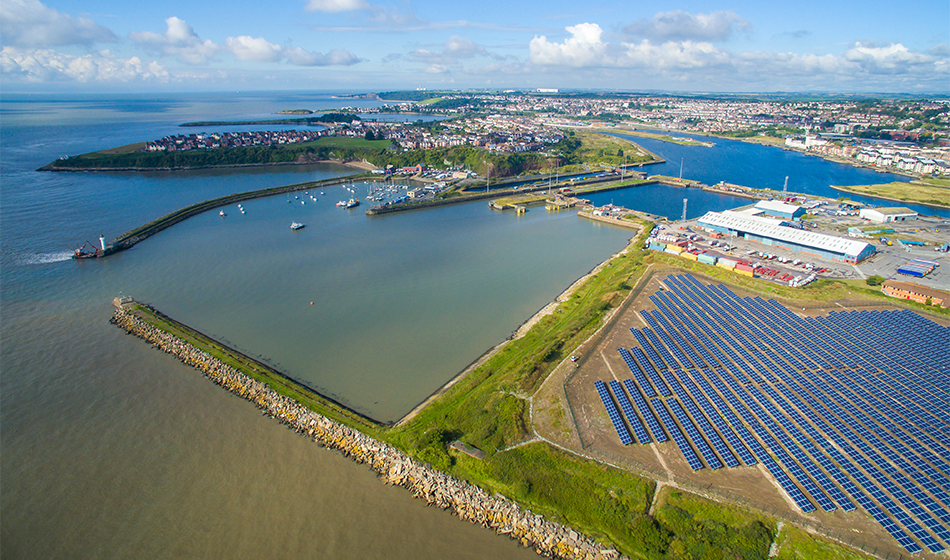
Associated British Ports (ABP), the UK port operator, is exploring a corporate venturing operation which would see it take equity stakes in clean tech startups in return for discounted leases and other benefits at the ports it owns.
The port operator is hoping to take a larger role in industrial decarbonisation and sees startup investment as a way to accelerate this strategy.
ABP owns 21 ports around the UK, including four on the Humber estuary, the UK’s largest ports complex and home to the country’s biggest industrial clusters. These ports are adjacent to many of the UK’s energy-intensive industries such as oil refining, chemicals and steelmaking, and as the property owner, ABP has come to play a key role in the UK’s energy transition.
The port owner now plans to take this further by investing in startups developing energy transition technologies in order to decarbonise and meets its goal to reach net zero by 2040. Instead of investing solely cash, however, it is planning to offer a combination of cash as well as discounts on leases and cargo fees in return for minority equity stakes in the startups that locate at its ports.

“We are looking at how do we use our land to support high-growth businesses – effectively startups and scale-ups in the energy transition space – and help them grow by providing land in strategic locations,” says Max Harris, head of strategy and sustainability at ABP. Harris is keen to develop the ports to be more relevant to the energy transition.
ABP launched a startup accelerator earlier this year but is following this up with a programme to explore taking stakes in the startups. The first cohort will be located in the Humber area at the end of this year. It will also have accelerators starting next year in South Wales and Southampton.
Although ABP’s ports are located in the heart of big industrial hubs, they are also strategic areas for clean energy industries such as hydrogen, carbon capture and storage, and alternative and low-carbon fuels. The operator has large clean energy tenants such as renewable energy company Siemens Gamesa, which manufactures offshore wind turbines at the port of Hull.
It will also consider commercial agreements that would not involve taking an equity stake, such as becoming a customer of startups or a channel through which it makes introductions to its customers. “The proximity our ports have to other industry is going to be important sources of demand for the startups’ products,” says Harris.
“The proximity our ports have to other industry is going to be important sources of demand for the startups’ products.”
Max Harris, head of strategy and sustainability at ABP
ABP, which is owned by a consortium of investors including Canadian pension providers and sovereign wealth funds, has ambitions to create a global hub for floating offshore wind in South Wales. “It can be a global centre of excellence. Innovation is an important factor for the floating offshore wind markets to develop in an efficient way,” says Harris.
The accelerator in Southampton will focus on maritime decarbonisation. The port is a hub for container and cruise ships. “We want to create a cluster around low-carbon fuels for shipping and also shore power and other ways to reduce emissions when ships are in port.”
The startup investments ABP will make will be from the corporate balance sheet rather than from a separate fund. “It is early steps in the CVC world,” says Harris.
